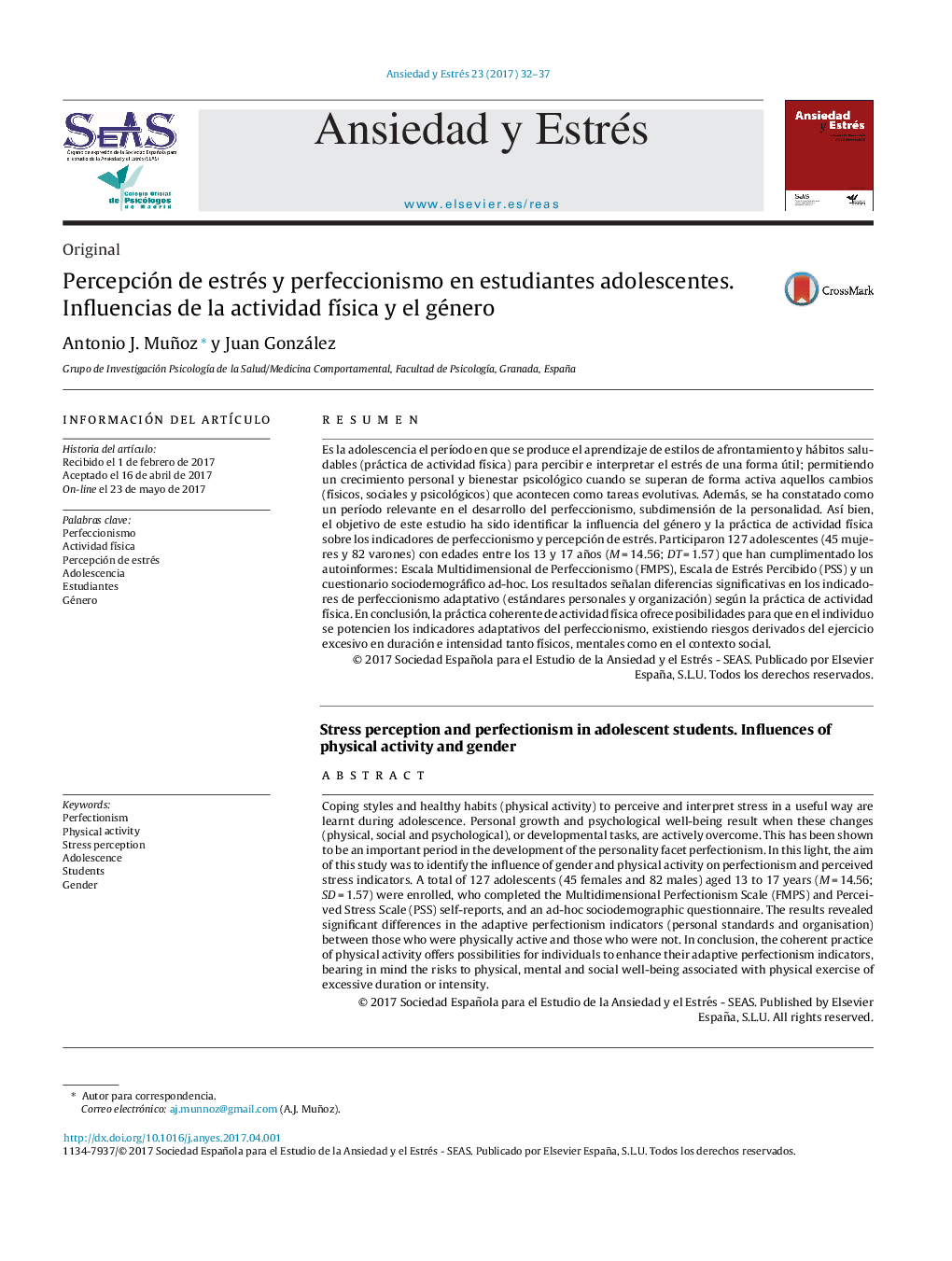| Article ID | Journal | Published Year | Pages | File Type |
|---|---|---|---|---|
| 7261541 | Ansiedad y Estrés | 2017 | 6 Pages |
Abstract
Coping styles and healthy habits (physical activity) to perceive and interpret stress in a useful way are learnt during adolescence. Personal growth and psychological well-being result when these changes (physical, social and psychological), or developmental tasks, are actively overcome. This has been shown to be an important period in the development of the personality facet perfectionism. In this light, the aim of this study was to identify the influence of gender and physical activity on perfectionism and perceived stress indicators. A total of 127 adolescents (45 females and 82 males) aged 13 to 17 years (MÂ =Â 14.56; SDÂ =Â 1.57) were enrolled, who completed the Multidimensional Perfectionism Scale (FMPS) and Perceived Stress Scale (PSS) self-reports, and an ad-hoc sociodemographic questionnaire. The results revealed significant differences in the adaptive perfectionism indicators (personal standards and organisation) between those who were physically active and those who were not. In conclusion, the coherent practice of physical activity offers possibilities for individuals to enhance their adaptive perfectionism indicators, bearing in mind the risks to physical, mental and social well-being associated with physical exercise of excessive duration or intensity.
Keywords
Related Topics
Social Sciences and Humanities
Psychology
Clinical Psychology
Authors
Antonio J. Muñoz, Juan González,
